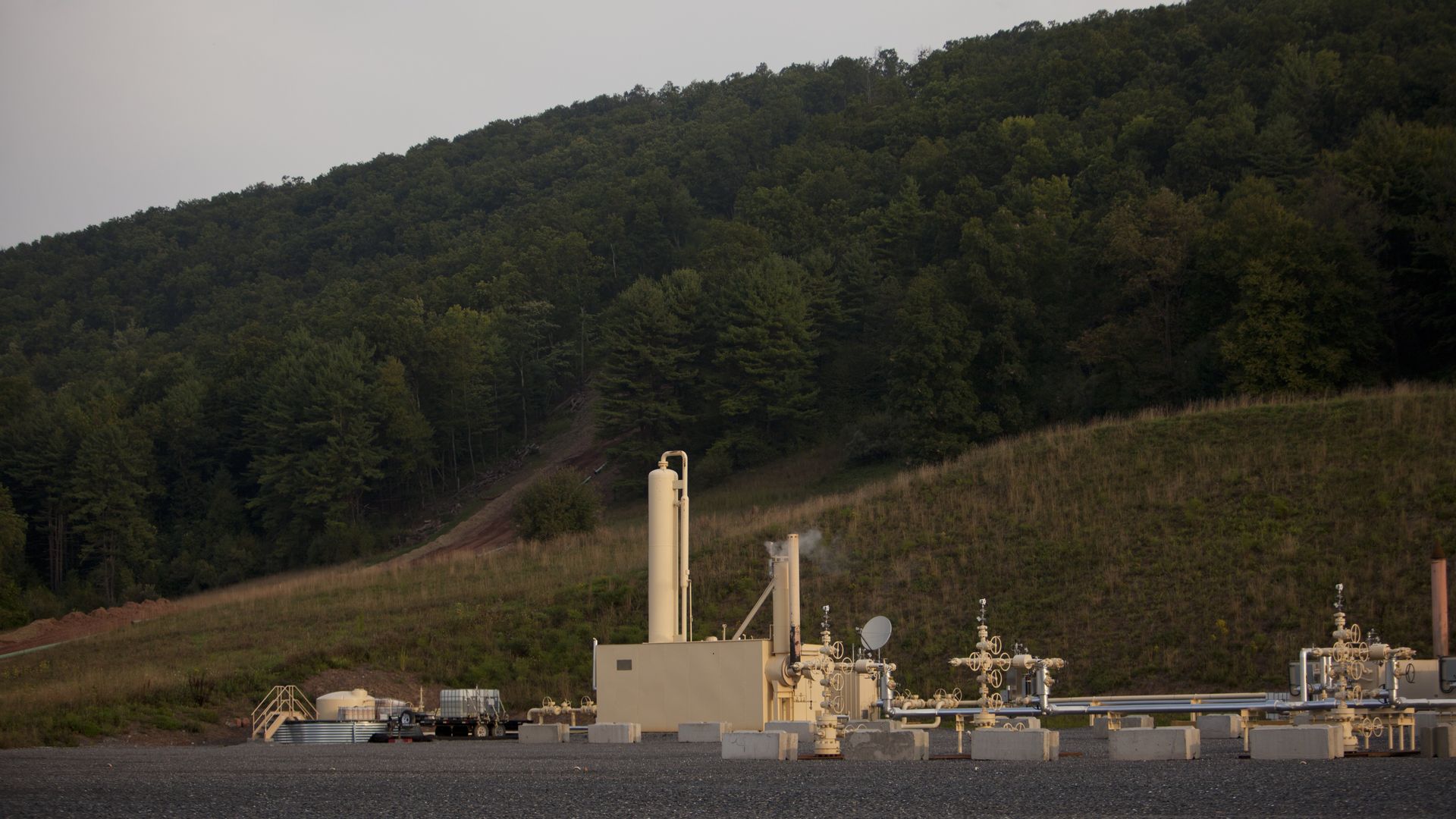EPA's relaxed methane regulations could cost new energy jobs
Add Axios as your preferred source to
see more of our stories on Google.

A natural gas filtration system in Mifflin Township, Pennsylvania. Photo: Robert Nickelsberg/Getty Images
The proposal by the Environmental Protection Agency (EPA) to roll back regulations on methane emissions not only poses environmental risks, but also jeopardizes new leak-detection technologies that could create high-paying jobs nationwide.
Why it matters: Reducing emissions of methane — a greenhouse gas with a global warming potential up to 34 times that of carbon dioxide over 100 years — is critical to maintaining the emissions advantages of natural gas over coal, especially as U.S. exports of liquefied natural gas (LNG) grow.
What's happening: A new generation of mobile sensors installed on trucks, drones and planes can detect methane leaks quickly and effectively, a study of the recent Mobile Monitoring Challenge found.
- Scientists, oil and gas operators, and state agencies have been working together to update existing regulations.
The impact: Early-stage companies developing this technology are poised to expand, but scrapping methane regulations could freeze their growth in the oil and gas communities where sensors would be deployed.
Between the lines: The administration has touted the rollback as a life jacket for small producers, but by its own estimates their savings could be as little as $2,000 per year.
- Meanwhile, the move has met with pushback from American Petroleum Institute Members like ExxonMobil, Shell and BP, who don't want higher methane emissions to undercut the benefits of natural gas.
What's needed: Colorado, which in February 2014 became the first state to put forward its own methane regulations, offers a better example. It required oil and gas companies to conduct periodic leak detection and repair surveys and mandated additional measures for tanks and other large methane sources.
- The state's policies were hailed as a model by the Environmental Defense Fund and earned Colorado’s Department of Public Health and Environment a Clean Air Excellence Award from the EPA. They also enjoy overwhelming support among oil and gas companies.
- Other states could take a cue from Colorado’s collaborative approach, which prioritizes the largest methane sources to reduce emissions at a lower cost.
Arvind Ravikumar is an assistant professor at Harrisburg University of Science and Technology and a non-resident fellow at the Payne Institute. Morgan Bazilian is a professor of public policy and director of the Payne Institute at Colorado School of Mines.

